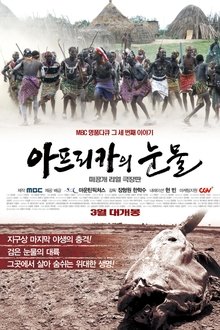Following a dream, Canadian paraglider pilot Benjamin Jordan travels to Malawi to teach children the joys of kite flying. There he meets Godfrey, a young man who has always dreamed of flying though has never had the means. The odd pair tour the country on bikes, building kites with youth while motivating them to follow their dreams. They are destined for Malawi's highest peak where, after weeks of ground training, the two will attempt to fly down and make Godfrey the first Malawian paraglider pilot.
Related Movies
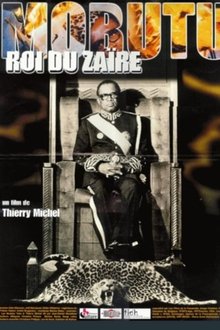
Mobutu, King of Zaire (1999)
This film is the result of more than two years of work tracking down archive material and witnesses close to Mobutu in Africa, Europe and the U.S. More than 950 hours of footage have been seen by the world. Among the 104 hours selected as the basis for this film, are 30 hours of archives recently discovered in Kinshasa and never before released. Completing these exceptional documents, are more than 50 hours of interviews with those close to the former president and the events surrounding his reign, conducted by the director in Kinshasa, Brussels, Paris and Washington. Like a vast historical puzzle, this film pieces together the tragic history of a country, and its self-styled leader - the dictator, Mobutu Sese Seko, "King of Zaïre".
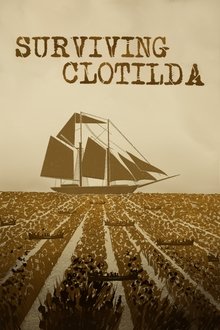
Surviving Clotilda (NaN)
In July 1860, the schooner Clotilda slipped quietly into the dark waters of Mobile, Ala., holding 110 Africans stolen from their homes and families, smuggled across the sea, and illegally imported to be sold into slavery. Surviving Clotilda is the extraordinary story of the last slave ship ever to reach America's shores: the brash captain who built and sailed her, the wealthy white businessman whose bet set the cruel plan in motion, and the 110 men, women, and children whose resilience turned horror into hope.

When We Were Kings (1996)
It's 1974. Muhammad Ali is 32 and thought by many to be past his prime. George Foreman is ten years younger and the heavyweight champion of the world. Promoter Don King wants to make a name for himself and offers both fighters five million dollars apiece to fight one another, and when they accept, King has only to come up with the money. He finds a willing backer in Mobutu Sese Suko, the dictator of Zaire, and the "Rumble in the Jungle" is set, including a musical festival featuring some of America's top black performers, like James Brown and B.B. King.

Back To Africa (2008)
An Austrian director followed five successful African music and dance artists with his camera and followed their lives for a year. The artists, from villages in Ghana, Gambia and Congo, were the subjects of Africa! Africa! touring across Europe, but they have unbreakable roots to their homeland and their families. Schmiderer lovingly portrays his heroes, who tell their stories about themselves, their art and what it means to them to be African with captivating honesty. The interviews are interwoven with dance scenes and colourful vignettes set to authentic music.
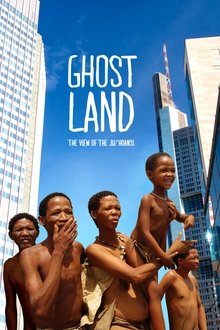
Ghostland: The View of the Ju'Hoansi (2017)
Remember the culture clash in THE GODS MUST BE CRAZY? This time it's real. One of the most ancient cultures on our planet is undergoing a major change. The Ju/Hoansi Bushmen in Namibia are not allowed to hunt anymore and need to converge with our so called “civilized” lifestyle. For the first time the Ju/Hoansi Bushmen travel through the Kalahari and then right into the heart of Europe. What starts as a look at their fascinating culture becomes an even more fascinating look at our Western lifestyle. A warm and humorous reflection of our habits through the eyes of people who are about to give up their million year old traditions.
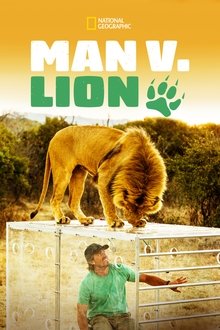
Man V. Lion (2014)
For wildlife filmmakers, the only way to safely explore the startling African lion is at the end of a mighty long lens — until now. Man v. Lion follows veteran big cat expert Boone Smith across the Nambiti Game Reserve as he tracks three male lions in the open African bush. But to truly understand these brothers, Boone goes face to face with them. We take an in-depth look at the lions' unique physical attributes, intricate hierarchy, and complex hunting strategies. Boone explores each stage of a lion's kill leading up to the final face-off: Boone in the middle of lions devouring their prey.

The Journey of Man: A Genetic Odyssey (2003)
Many geneticists and archaeologists have long surmised that human life began in Africa. Dr. Spencer Wells, one of a group of scientists studying the origin of human life, offers evidence and theories to support such a thesis in this PBS special. He claims that Africa was populated by only a few thousand people that some deserted their homeland in a conquest that has resulted in global domination.
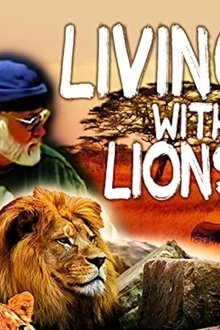
Living with Lions (2002)
On the African plains, where only the strong survive, one big cat rules supreme. This is life in the raw: savage, beautiful and unforgettable. During the eight years that Jurgen Jozefowicz filmed a pride of lions in South Africa's Kruger National Park, he won the trust of the dominant male and, astonishingly, was accepted into the pride. This is his story. How does it feel to live amidst a group of the most feared predators on the African continent as they fight to survive in a harsh, unforgiving world? Jurgen's film shows what it's like and is the result of his remarkable adventures. Jurgen is one of the world's premier wildlife photographers. His story of his life with these lions is one that spans a period of political struggles, disease and drought, showing the highs and the lows of life in the lion pride.
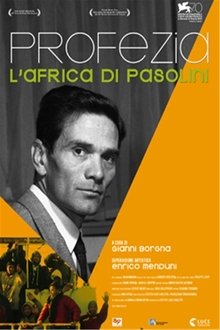
Prophecy - The Africa of Pasolini (2013)
Pasolini seeks in Africa the peasant and revolutionary authenticity he had sought in the Roman villages. This hope will end in a new disappointment: Africa is a reservoir of irremediable contradictions that will explode in the massacres of yesterday and today. It is an Africa that starts from the outskirts of Rome, but thousands of non-EU citizens flock to the sub-proletariat of the villages.
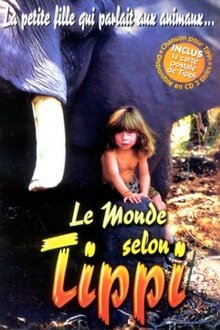
The World According to Tippi (1997)
Tippi is no ordinary child. She believes that she has the gift of talking to animals and that they are like brothers to her. 'I speak to them with my mind, or through my eyes, my heart or my soul, and I see that they understand and answer me.' Tippi is the daughter of French filmmakers and wildlife photographers, Alain Degre and Sylvie Robert, who have captured her on film with some of Africa's most beautiful and dangerous animals. Tippi shares her thoughts and wisdom on Africa, its people and the animals she has come to know and love. Often her wisdom is beyond her years, and her innocence and obvious rapport with the animals is both fascinating and charming.
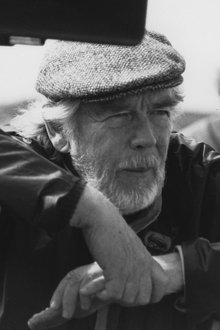
The Vocation (1974)
Sven Nykvist, best known as Ingmar Bergman cinematographer, made this film as a tribute to his father who was a missionary in Kongo in the early 20th century. The story of his father Gustav Natanael Nykvist is told through his own photos, letters, and films. Director & cinematographer: Sven Nykvist. Narrators in the English dubbed version: Liv Ullmann & Sean Connery. Produced by Ingmar Bergman (Cinematograph AB). Digitally restored in 2022.
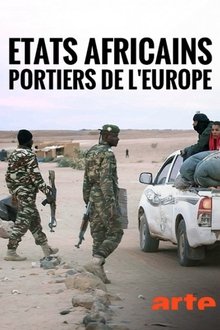
Europe's Doormen (2018)
The EU is investing billions to establish African states as its new border guards. It also supports dictatorships that close their borders in return.
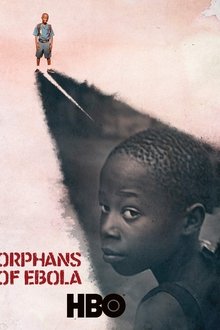
Orphans of Ebola (2016)
Ben Steele’s ORPHANS OF EBOLA follows Abu, a 12-year-old boy from a Sierra Leone village, who loses eight members of his family and must restart his life elsewhere. Filmed over a period of four months, beginning just after the height of the epidemic in Dec. 2014 through the reopening of the country’s schools in April 2015, Abu’s story illustrates the incredible bravery of the thousands of children who have been orphaned by Ebola as they reconcile with the past and forge new lives.

God Grew Tired of Us (2006)
Filmmaker Christopher Quinn observes the ordeal of three Sudanese refugees -- Jon Bul Dau, Daniel Abul Pach and Panther Bior -- as they try to come to terms with the horrors they experienced in their homeland, while adjusting to their new lives in the United States.
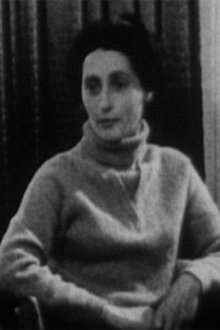
The Save the Children Fund Film (1971)
Director Ken Loach explores the politics of race, class and charity in a capitalist society in this documentary funded by the Save the Children foundation.

Another Day of Life (2018)
In 1975, Ryszard Kapuściński, a veteran Polish journalist, embarked on a seemingly suicidal road trip into the heart of the Angola's civil war. There, he witnessed once again the dirty reality of war and discovered a sense of helplessness previously unknown to him. Angola changed him forever: it was a reporter who left Poland, but it was a writer who returned…

Reunion Island: An Overview (2010)
Réunion Island: An Overview is documentary short film created by Brian Iannone. It is a documentary-style video that features the island of Réunion located in the Indian Ocean. The video shows scenes of the most known natural and tourist attractions in Réunion including its beaches, volcanoes (Piton de la Fournaise) and wildlife such as the "Endormi" chameleon.
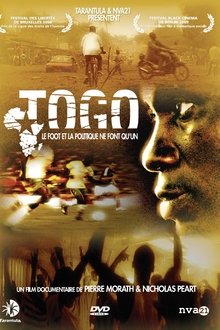
Togo, le foot et la politique ne font qu'un (2008)
October 8, 2005. Togo, one of Africa's poorest countries, qualifies for the World Cup for the first time in its history. The achievement is not only historic; it also hastens the end of the bloody civil war that has been ravaging the country for several months. On the eve of the World Cup opening in Germany, hopes are high in Lomé, the capital of Togo, that the national team will restore pride and prosperity to an entire people. However, disillusionment quickly sets in. The team had not even entered the competition when it was already beset by endless internal problems. What if soccer, in the end, was nothing more than a reflection of the deep-seated problems that have been plaguing Africa for years?

Degrees North (2015)
Degrees North mixes hair-raising action footage of leading freeriders with a story of adventure and discovery. World-renowned freeriders Xavier De Le Rue, Samuel Anthamatten and Ralph Backstrom progress the sport of freeriding through the use new technology to scope remote areas in order to show ski and snowboard action in a way never seen before. The film charts the progress of an idea to use these wings to access areas from the air in a more personal and organic way, with the aim of capturing great action footage. However the realities were not so simple.
